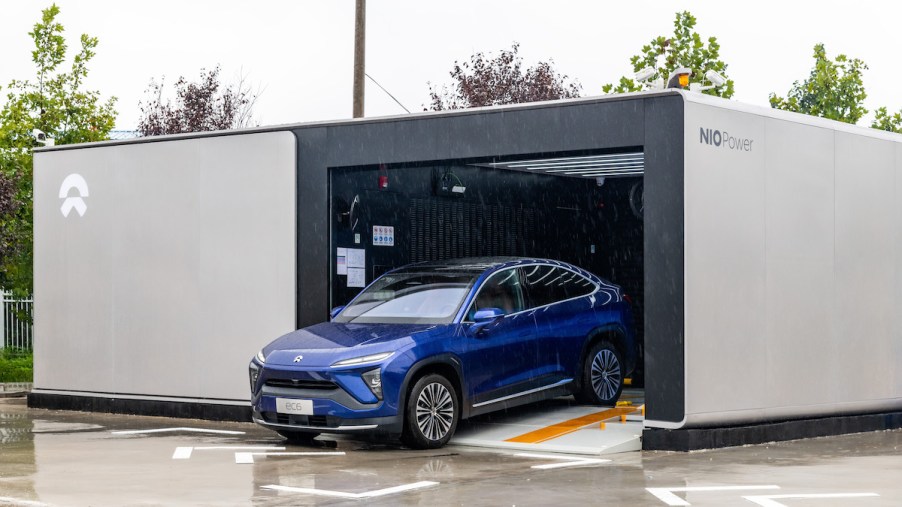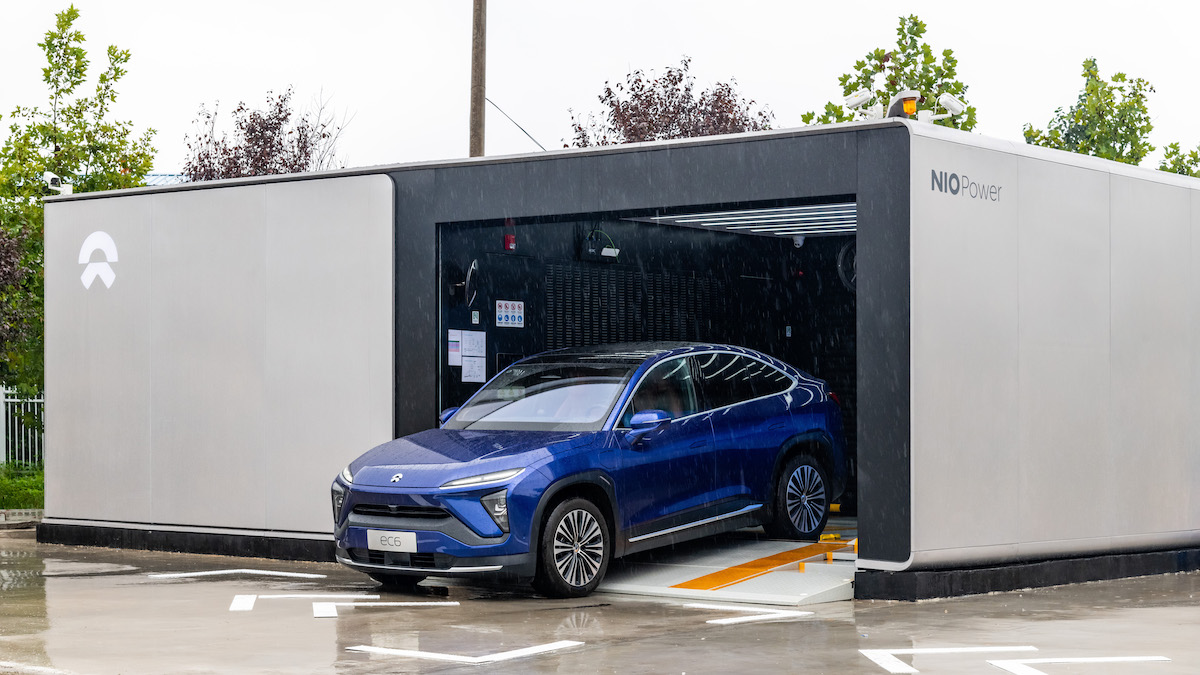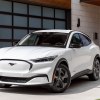
China’s EV Battery Swap Plans Push Ahead Despite Tesla’s Rejections: ‘Never Going to Happen’
The future role of electric vehicles depends on the availability of reliable facilities to charge the batteries that power EVs. Currently, most EV makers expect users to charge their EVs at home or at public fast-charging stations similar to gas pumps. But a growing movement wants to change the plug-in paradigm by swapping depleted batteries for fully charged ones. However, other industry insiders say EV makers, including Tesla, will “never” agree to swappable batteries.
China’s push for swappable EV batteries

According to Reuters, a Tesla spokesperson dismissed the concept of swappable EV batteries in 2021, saying the idea is “riddled with problems and not suitable for widescale use.” Tesla’s stance appears centered on a reluctance to abandon its proprietary battery technology and company-owned EV charging network.
Other EV makers, such as General Motors and Volkswagen, stand to lose some brand distinction if battery swapping prevails. That’s because they’ll lose proprietary battery technology.
A VW spokesperson said the company considered battery swapping to reduce wait times at charging stations early in its EV development process. However, advances in fast-charging technology and the higher cost of swappable batteries caused VW to abandon battery swapping. The spokesperson also said the company actively monitors all advances in technology and will adjust course as necessary.
Andy Palmer, head of the EV maker Switch Mobility and ex-CEO of Aston Martin, told Reuters:
“You’ll never, ever get carmakers to agree to swappable batteries.”
Tesla didn’t respond to Reuters’ request for comment. However, it’s safe to say the fast-charge camp and the swappable-battery camp have strong supporters.
China’s Ministry of Industry and Information Technology (MIIT), which oversees EV production, expects more than 100,000 EVs with swappable batteries and over 1,000 battery swap stations in 11 cities by 2023. Larger, centrally located city stations will service passenger cars and commercial vehicles. And smaller, outlying cities will focus on swapping heavy-duty truck batteries.
Chinese automakers Nio and Geely, swappable EV battery developer Aulton, and state-owned oil producer Sinopec plan to install 24,000 EV battery swap stations at Sinopec stations across China by 2025. That’s a significant increase over the estimated 1,400 swap stations currently in China. It’s also a step toward realizing the country’s goal of introducing more than 6 million passenger EVs by 2025.
What is EV battery swapping?
Battery swapping allows EV drivers to trade a depleted battery for a fully charged one. Current fast-charge technology enables EV drivers to charge their batteries only partially in about 15 minutes.
One of China’s top EV automakers, Nio, operates 800 battery swap stations in that country. The company is setting up more in Europe and plans to offer the service to U.S. customers by 2025. Nio claims its automated battery-swapping system completes a cycle in as little as three minutes. But its swapping stations are limited to Nio cars using the automaker’s proprietary batteries.
The same flaw exists with other proposed systems worldwide — there must be a standardized battery system across EV platforms for battery swapping to work. China’s MIIT is attempting standardization by instituting norms for swapping technology in November 2021. In addition, the ministry implemented rules for EVs with swappable batteries concerning safety requirements, test methods, and inspection.
However, grid charging has a head start with billions of dollars invested in charging infrastructure around the globe. Also, automakers continue rolling out proprietary EVs with proprietary batteries capable of longer ranges and shorter charge times, which could make swapping unnecessary.
Nonetheless, American and European EV automakers that depend on Chinese EV sales to fund EV transition might have no choice but to accept swappable battery mandates. That’s according to John Helveston, assistant professor at George Washington University’s School of Engineering.
How long does it take to charge an electric vehicle?
EV battery charging times vary depending upon several factors. They include the size of the battery, the vehicle’s allowable charging rate, and even the outside temperature. For example, batteries charge slower in low temps.
However, according to Kelley Blue Book, most EVs on the road fully charge in eight to 10 hours, with some taking as long as 12 hours and others as little as four hours.



